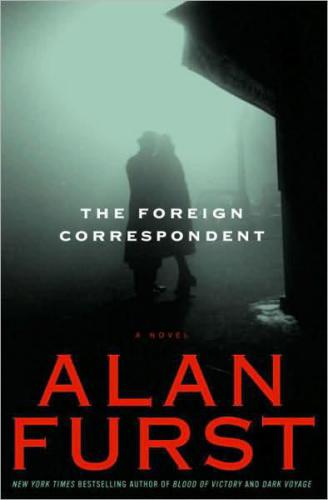
The Foreign Correspondent
Night Soldiers Series, Book 9
کتاب های مرتبط
- اطلاعات
- نقد و بررسی
- دیدگاه کاربران
نقد و بررسی

Starred review from April 10, 2006
Furst's reputation as one of today's best writers, in any genre, is further solidified by this gripping historical thriller with echoes of Graham Greene, which opens in Paris in December 1938. Journalist Carlo Weisz, an expatriate Italian who's half Slav, is fighting the Mussolini regime by writing for the Paris-based underground opposition newspaper, the Liberazione
. When agents of the OVRA, the Italian secret police, murder the Liberazione
's editor in the arms of his mistress, Weisz assumes greater responsibility for keeping the paper running. OVRA also targets Weisz and his surviving colleagues, forcing him to scramble to stay alive while continuing his subversive work. Furst (Night Soldiers
) excels at characterization, making even secondary figures such as shadowy presences from British intelligence and Nazi minders more than cartoon stereotypes. Through the exploits of his understated hero, Furst presents a potent portrait of Europe on the eve of WWII.

Starred review from May 15, 2006
Paris, 1939: foreign correspondent Carlo Weisz agrees to edit a clandestine journal opposing Italian fascism. He slips into Italy to recruit help, gets arrested but escapes. That, basically, is all there is to the plot of this superior thriller by the author of "Kingdom of Shadows". Menace is everywhere in Furst's world: the man on the street corner outside one's apartment, the unanticipated interrogation by the police, the stranger who bothers the concierge. The protagonist commits himself, things happen, his attempts fail. Weisz's lover persuades him to smuggle information out of Nazi Germany. He asks her, -What you are doing? Will it really change anything? - -Who can say? - she replies. -What I do know is that if I don't do something, it will change me. - Furst is virtuosic at setting scenes: -two shop girls in gray smocks, riding bicycles, an old man in a café , reading "Le Figaro", his terrier curled up beneath the table, a musician on the corner, playing the clarinet, his upturned hat holding a few centimes. - Furst's characters live in a gray world, confronted by monsters -and these monsters are winning. Strongly recommended. [See Prepub Alert, "LJ" 2/1/06.]" -David Keymer, Modesto, CA"
Copyright 2006 Library Journal, LLC Used with permission.

Starred review from May 1, 2006
Paris, 1939. When we heard that dateline, we used to think of Rick, Ilsa, and Sam, tinkling "As Time Goes By" in the background. Now we think of Alan Furst. His latest expatriate in Paris is a journalist, Carlo Weisz, half Italian and half Slav, working as a foreign correspondent for Reuters and finding himself drawn into the steadily more dangerous activities of the Italian Resistance. What makes Furst's world so utterly seductive is the tantalizing sliver of time he writes about: not World War II but the period just prior to its beginning in earnest, when secret agents of every stripe were huddled in Paris, and cynical individualists were facing the realization that even they stood to be trapped in the coming crossfire. But they weren't trapped quite yet, and despite the storm clouds, romance still hung in the night air: Weisz, for example, was "living on the diet imagined by every dreamer who ever went to Paris: bread, cheese, and wine"--and women, who were "a classic, and effective, addition to the diet." But politics was part of the diet, too, roughage of a kind, and gradually Weisz moves from writing the occasional antifascist article for a Resistance newspaper to taking a more active role, spurred by his desire to help his lover, living in Berlin, escape the Nazis. Furst fans will delight in identifying the various characters from earlier novels who make cameos here, but that's only a pleasant aperitif, like greeting old friends at your favorite restaurant. The real pleasure is the meal itself, and Furst serves another delicious helping of Paris suspended in a brief moment of time when everyone waited for something to happen, good or bad: "" Il faut en "fenir" (There must be an end to this). Fortunately, for Furst readers, not quite yet.(Reprinted with permission of Booklist, copyright 2006, American Library Association.)

























دیدگاه کاربران